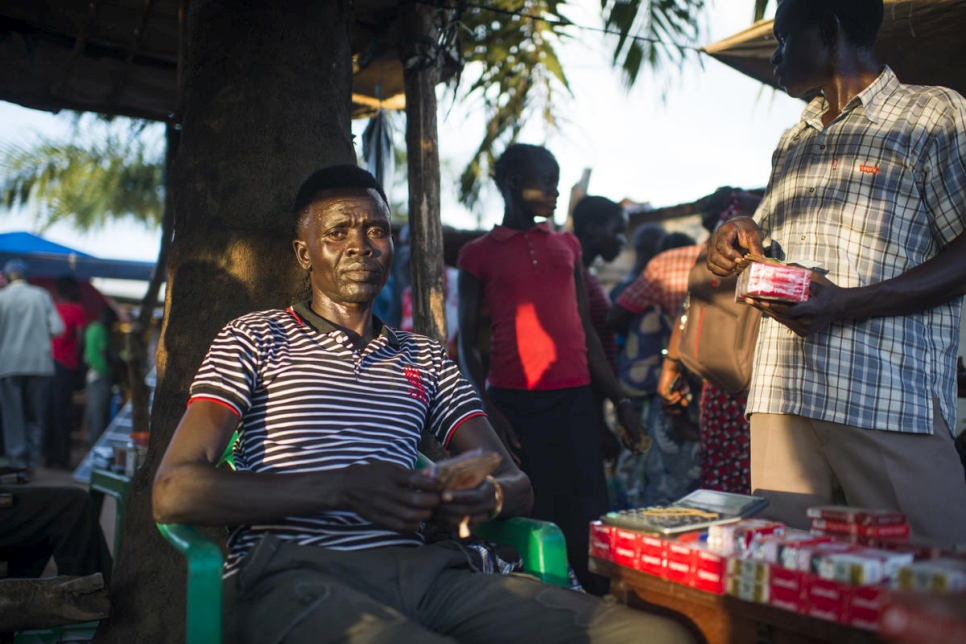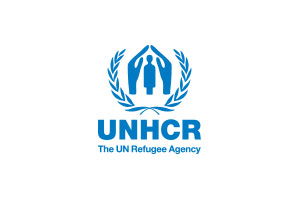
A South Sudanese refugee changes money at a market in Meri refugee site, the Democratic Republic of the Congo, November 2017. © UNHCR/Colin Delfosse
This is a summary of what was said by UNHCR spokesperson Babar Baloch– to whom quoted text may be attributed – at today’s press briefing at the Palais des Nations in Geneva.
UNHCR, the UN Refugee Agency, is seeing a surge in refugee arrivals from South Sudan in the Democratic Republic of the Congo (DRC). Over the past few days thousands of desperate people have been crossing the border to escape fighting and violence against civilians.
It’s estimated that 5,000 refugees have arrived in several border villages near the town of Ingbokolo, in north-east DRC’s Ituri province, according to local village chiefs. There are reports that an additional 8,000 people are displaced inside South Sudan, on the outskirts of the town of Yei.
People are fleeing clashes that started on January 19 between the army and one of the rebel groups, the National Salvation Front (NAS). This is in South Sudan’s Central Equatoria State that borders DRC and Uganda. The clashes are blocking humanitarian access to the affected areas.
In DRC, those fleeing the violence arrived by foot over the weekend. Most are women, children and the elderly. They arrived exhausted, hungry and thirsty. Among them are people suffering malaria or other illnesses. Many have suffering from trauma from having witnessed violent incidents, including armed men reportedly murdering and raping civilians and looting villages.
UNHCR staff in DRC’s Ituri province say that desperate people are seeking shelter in churches, schools and abandoned houses, or sleeping in the open. This is a remote area and border villages have almost no infrastructure or health centres. New arrivals are surviving thanks to food that is being shared with them by local villagers.
The areas in which refugees have arrived are difficult to reach, with roads and bridges badly damaged and in a state of disrepair. The Congolese authorities are encouraging people to move away from the volatile border area and move further inland, where they can get better help.
UNHCR has sent additional staff to Ituri to register refugees and support their possible relocation. However, we need funds to set up shelters and provide assistance including food, water and medical services in the nearest refugee settlement, Biringi. Biringi is located further south and has an existing population of over 6,000 South Sudanese refugees.
The conflict in South Sudan has created over 2.2 million refugees since 2013. UNHCR repeats its call for all parties to the conflict to take all possible action to ensure the safety of civilians and their freedom of movement, and to guarantee safe routes for civilians to leave conflict areas.
For more information on this topic, please contact:
- In Juba, Eujin Byun, byun@unhcr.org, +21 1922 405 683
- In DRC, Andreas Kirchhof, kirchhof@unhcr.org, +243 817 009 484
- In Geneva, Babar Baloch, baloch@unhcr.org, +41 79 513 9549
- In Geneva, Charlie Yaxley, yaxley@unhcr.org, +41 79 580 8702
Originally published by UNHCR on 12, February 2019



